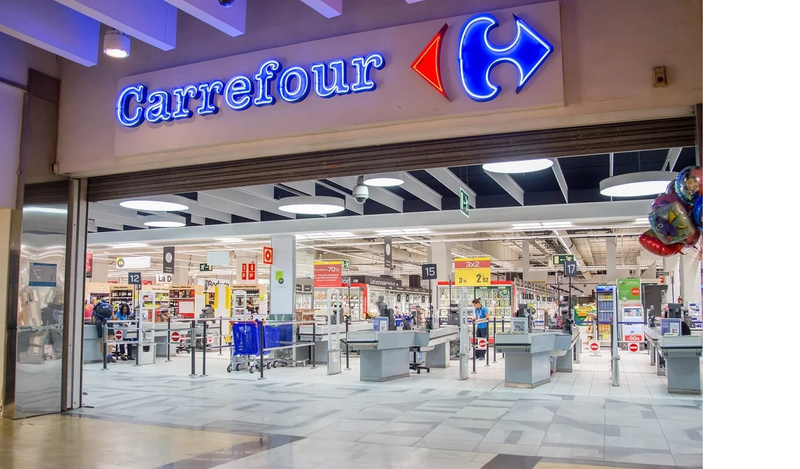
UNEP official: Every dollar invested in reviving degraded lands brings up to $30 in returns
Elizabeth Maruma Mrema, Deputy Executive Director of the United Nations Environment Program (UNEP), said every ...

Carrefour is stepping up up efforts to achieve carbon neutrality by 2040, especially as the world is keeping its eye on the United Nations Climate Change Summit (COP26).
In the wake of COP21 in 2015, Carrefour raised its targets for reducing its CO2 emissions. It then set a new reduction pathway approved by the Science-Based Target (STBi) initiative in 2020 (compatible with keeping the increase in global warming to below 2°C by 2100).
Now, As the world marks COP26, the Group is once again raising its aim and has set itself the target of carbon neutrality by 2040. To do this, the Group is intending to reduce the emissions resulting from its activities at source as much as possible. In particular, this will involve using completely renewable electricity by 2030, replacing all of its fluorinated refrigerants with natural fluids and further reducing its energy consumption.
Citizens and consumers alike set great store by carbon neutrality and using renewable energies. The Carrefour Group is aware that it is seen as a forerunner in the retail sector and has set itself the target of carbon neutrality by 2040. Thanks to its customers, suppliers and partners, Carrefour is implementing solutions to adapt to climate change and ease the transition over to a low-carbon economy. In compliance with the commitments made by the international community, Carrefour has constantly raised its aim and stepped up its efforts to tackle climate change.
In 2020, the targets set within the framework of the Science-Based Target initiatives were as follows a 30% reduction in emissions by 2030 and a 55% reduction by 2040 (compared with 2019 levels). This equates to an annual reduction in emissions of 2.5% (for a “well below 2°C” pathway, namely one approved by the SBTi initiative as being compatible with keeping global warming to below 2°C by 2100).
Carrefour is ahead of these targets – it reduced emissions by 9% in 2020 compared with 2019. Henceforth, the Group’s action plan to achieve carbon neutrality will involve reducing the CO2 emissions resulting from its activities at source as much as possible by tackling the following areas: Reducing the emissions resulting from the Group’s activities by 50% by 2030 (compared with 2019 levels) and then by 70% by 2040 (compared with 2019 levels), a target aligned with the SBTi’s 1.5°C scenario.
For this end, Carrefour is using 100% renewable electricity by 2030 To be able to do this, the Group will give priority to on-site production – producing electricity for its own use or injecting it into the grid –, and will then enter into PPAs (Power Purchase Agreements). Electricity consumption accounted for 58% of greenhouse gas emissions in 2020
Carrefour also works on cutting energy consumption by 27.5% by 2030 (compared with 2019 levels) – that’s equivalent to more than 1 million MWh per year and a 240,000 tonne reduction in CO2 equivalent. This reduction equates to €100 million worth of annual energy savings. Energy consumption accounted for 66% of greenhouse gas emissions in 2020
It also reduces emissions resulting from using refrigerants by 50% by 2030 and then by 80% by 2040. In particular, this will involve replacing fluorinated refrigerants with new facilities that use CO2, in compliance with the European F-Gas regulation. Refrigerant consumption accounted for 34% of CO2 emissions in 2020.
Elizabeth Maruma Mrema, Deputy Executive Director of the United Nations Environment Program (UNEP), said every ...
President Abdel Fattah El Sisi issued eight directives on the Labor Day to ensure providing ...
Paysky, the leading digital payment solutions provider, was named among Forbes Top 50 Fintech companies ...


اترك تعليقا